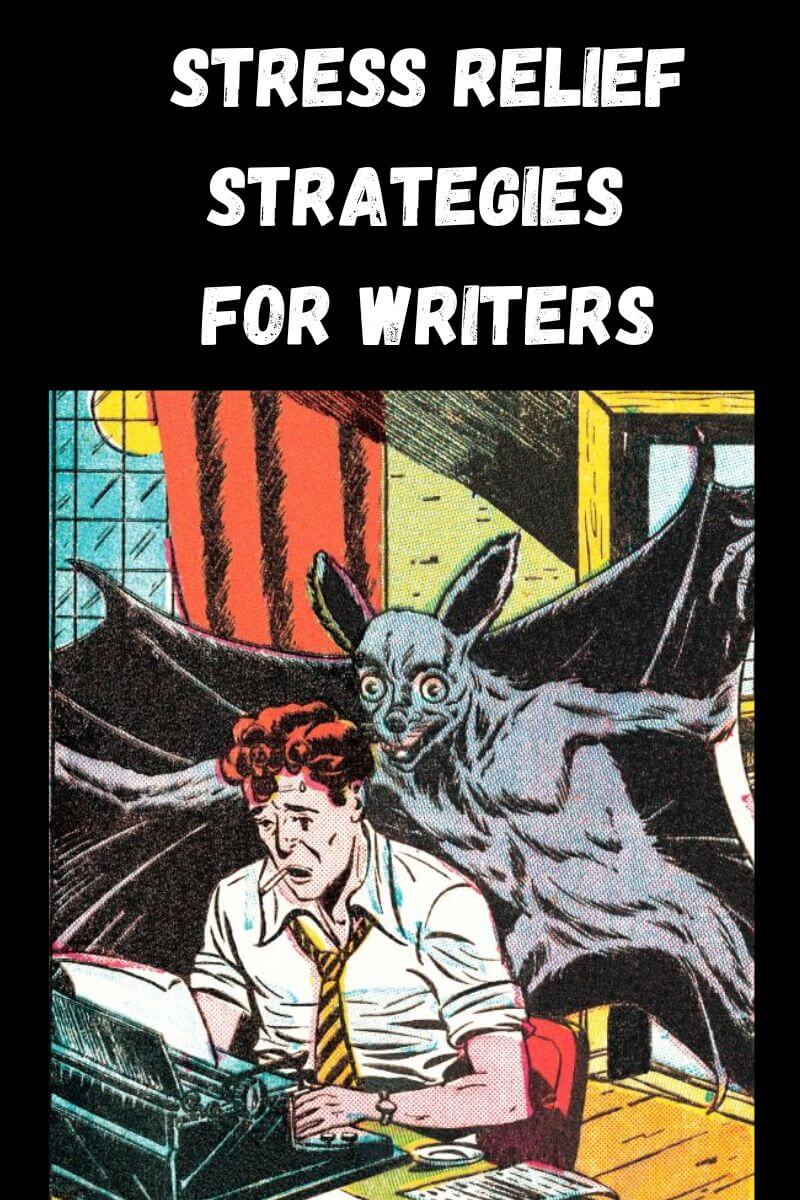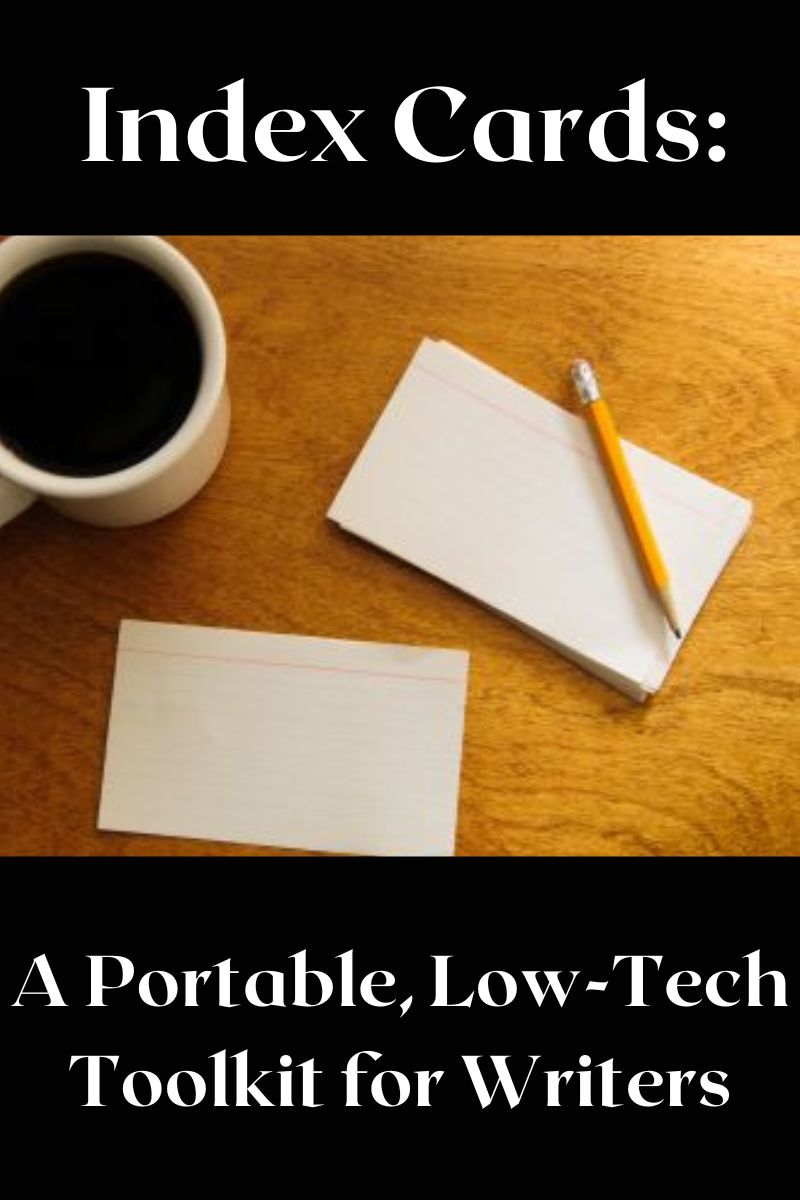Stress Relief for Writers
By Glen C. Strathy
Stress relief for writers is a topic that interests profesional writere more than amateur or aspiring writers. If writing is your hobby, you may find the process of writing to be a relaxing and enjoyable experience -- one that actually relieves stress. On the other hand, if you are writing professionally, you probably have deadlines. And writing quickly enough to meet a deadline so you can impress an editor can be a stressful experience.
Making the situation worse is that stress can cause writer's block, whether the stress is coming from your current writing project or other areas of your life.
Besids, many writers are naturally prone to anxiety. It's what drives us to write better.
If you are a writer who suffers with stress and anxiety, it is worthwhile learning to identify your level of stress to know when it's time to use some strategies that promote stress relief for writers.
So let's first consider what levels of stress a writer can experience, and which ones demand intervention...
The 5 Stress States Writers Can Experience*

- The Ideal, Stress-Free Creative State: You feel relaxed, engaged in your writing, productive, and open to new ideas as they come along. You feel writing is fun. You are happy to talk to others about your writing. You are confident and not worried about the project. You have plenty of time.
- The Workaholic State: You are engaged in the writing, determined, confident, and energetic... but also feeling pressured. This is the first stage of stress. You are getting a lot done, but it feels as though there there is not enough time to do it. You can't afford the time for self-doubt, so you tend to reject other people's valid comments about your writing, believing you alone know best. You also reject your own critical thoughts about your story. Writing feels more like work than fun, and you may work longer hours than is healthy, putting off other activities such as self-care. This state can be addictive, because of the high adrenaline associated with it. It can be a very productive state, but the quality of your writing may be less than optimal (not that you'd admit it).
- The Panic State: You feel overwhelmed by stress and the challenges of finishing your current project. You are prone to emotional outbursts. Nothing is going right with the writing and you don't know how to fix it. You may feel you need addictive substances (coffee, tobacco, alcohol, or worse) to get anything done. Your current story seems impossible to write and you desperately want someone else to tell you how to fix it. You wish you could hire someone to fix it for you.
- Writer's Block: In this state, your energy level seems to have collapsed. You become quiet and withdrawn. You have no enthusiasm for the project anymore. Writing feels like torture. You can only do easy, simple tasks (e.g. spell check). You feel like no one can help you, so you avoid discussing the writing with anyone.
- Self-Sabotage: In this final stage you have completely given up. You think writing is for idiots. You may find yourself tempted throw your laptop/manuscript into a river or trash bin, or otherwise destroy the work you've done so far.
Everyone has a natural tendency to be drawn into one of the five stress states when under pressure.
If you can, you should try to be in the first stress state most of the time. Occasionally, when under the pressure of a deadline, you may slip into the Workaholic state and still get your writing done.
What you must avoid is falling into the Writer's Block or Self-Sabotage states, which can happen when stress gets out of hand.
From time to time, while you are working on a project, stop and ask yourself which of the five states you are in. If you are in anything other than the Ideal state, it may be time to pause and use some stress relief strategies. If you are in the Panic state and in danger of collapsing into Writer's Block, it's definitely time to take a break and unwind some of your stress.
Strategies to Help with Stress Relief for Writers
Many strategies exist for reducing stress and you may already know some that work for you.
One of the best strategies is to go for a walk, ideally in a natural setting such as a park. You want to pass trees, grass, flowers, and water. You're not looking for an arduous hike or climb, so pick a place with easy walking paths.
As you walk, just let your mind wander. It's okay to think about your writing project, but also okay to let your thoughts drift to whatever topic comes to mind.
Many writers find that great ideas and solutions come to them while walking, but it's also okay if they don't. Your subconscious may continue to work on your writing problem while your conscious mind just enjoys the scenery and the smells of nature.
Other stress relief methods that may work for you include...
- Spending time with friends and family (perhaps outdoors). You could have a barbecue in a park, hang out on a backyard deck or in a sidewalk cafe.
- Take a long bath.
- Go dancing.
- Get a massage.
- See a movie (to take your mind away from your project).
Do whatever works for you and is affordable.
Below is a stress relief tool I stumbled across recently which I find helps immensely when I am experiencing any kind of stress or anxiety. You can use it to relieve stress over a current or upcoming project, or get some relief from things that happened to you in the past that have left emotional wounds. It takes only ten minutes, but it really works.
Make sure you have some privacy. Then play the video and follow the Yawn Guy's instructions. You'll be amazed how much more relaxed you will feel afterwards.
You can play this video as often as you like. And the best part is, it's FREE!
* My knowledge of the 5 Stress States from conversations with Dr. Eric Wolterstorff, an expert on organizational stress and culture. I have adapted the descriptions to apply more specifically to the topic of stress relief for writers.
- Home
- Writing Tools
- Stress Relief




















